Are you looking for some healthy treats to include in your donkey’s diet? Food is a great place to start if you have ever wondered how to take care of your donkey residents and bond with them in the best possible way. In this blog post, we have also tried to find answers to your “ how to “ concerns regarding donkeys and treats. So here are about 15 healthy treats that can be safely fed to donkeys as treats.
Healthy treats for donkeys: what to know about their eating habits
Before diving deeper into the topic, it is essential to understand and dissect the needs of a donkey so that we can feed them mindfully.
Donkeys are trickle feeders, which means that they have a tendency to feed and forage for continuous periods of time. This is also why donkeys are more prone to weight gain and obesity issues if their diet is not monitored properly. Hence it is more than important to gain an insight into what in their feed can turn out to be detrimental in the long run.
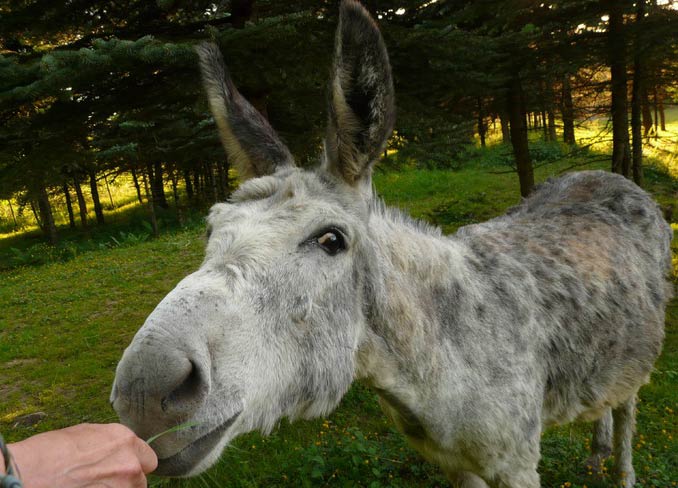
It is essential to give them a feed rich in fiber as it is directly related to the health of their hindgut and small intestine. Care must also be taken to limit their sugar intake and calories as it can only lead to obesity and other fatal diseases such as laminitis.
Donkeys aren’t well equipped with the ability to digest large portions of concentrates owing to their smaller stomach and small intestines, and this is why it is advised that their meal portions should be split into smaller digestible portions.
Considering all the above points, we have carefully selected 15 healthy treats that you can feed your donkeys safely.
1. Bananas
In addition to being a rich source of potassium, bananas are also a reservoir of vitamin B6, fiber, magnesium, vitamin C, and manganese. These minerals are known to play an important role in a donkey’s metabolism. It is also safe to state that bananas can be fed along with their peels as they are considered safe and donkeys seem to love them as well. Though donkeys face a constant threat of falling prey to obesity, it is rather essential to be mindful of the fact that bananas must be provided in moderation to avoid any sort of health risks.
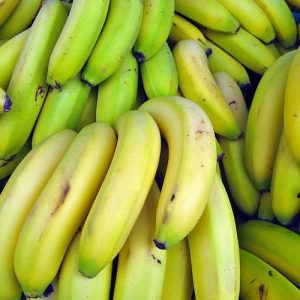
2. Watermelon
Donkeys can fulfill their need for water through watermelons that tend to harbor about 92 percent of water. Watermelons are an excellent choice if you need to keep your donkeys hydrated while endowing them with a refreshing treat. Watermelons also play an essential role in keeping the digestive system of an aged donkey lubricated.
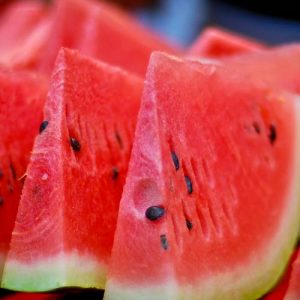
3. Oranges
Another great pick for treats is an orange. In addition to being rich in vitamin C, oranges are also known to contain a significant amount of fiber and water. It is also important to note that oranges shouldn’t be fed as a whole to our donkey residents and must be first cut into sections instead.
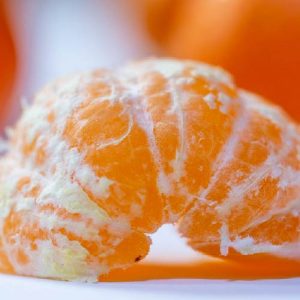
4. Blackberries
As donkeys face a constant threat of obesity owing to their ability to pull nutrients efficiently from the feed, it is important to be mindful of their calorie intake. This is why treats that are low in calories and high in fiber are much preferred when it comes to feeding our donkey residents. 100 grams of blackberries have only 43 calories and 5.3 grams of fiber. Hence it is safe to state that blackberries are a safe bet when it comes to donkey treats.
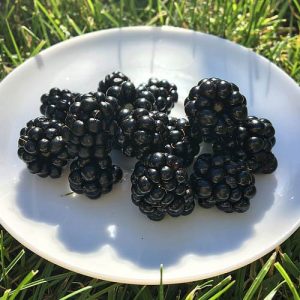
5. Pineapple
While pineapples are a rich source of vitamin C, they also contain antioxidants that play a major role in keeping diseases at bay. It is advised to cut these in small triangular portions with the peel intact in order to avoid any sort of choking that might pose a threat to our equines.
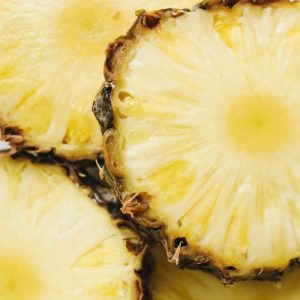
6. Pears
Another fiber-rich fruit that is low in calories is pear. It is also low in glycemic index which is to say that its sugar content is significantly low. Pears are also rich in potassium and they are also responsible for keeping gut health in check.
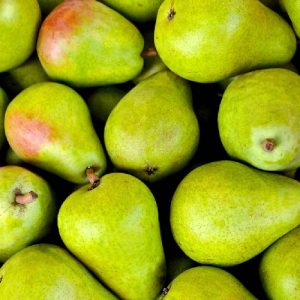
7. Apples
Apples are more of a treat than a staple item for donkeys as they are ruminant grazers and they tend to rely more on grass and straws for their survival. Apples are high in fiber and contain up to 95 gm of calories, 0 gm fat, and 3 gm fiber which makes it rather a healthy and relish-worthy treat for donkeys.
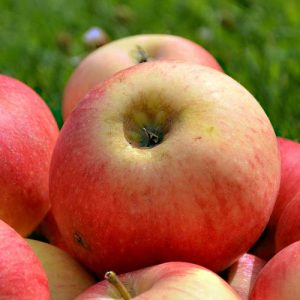
8. Strawberries
Giving your donkey wild strawberries to graze upon, fuels its appetite because of its resemblance with the donkey’s natural foraging instinct. Strawberries are also rich in fiber and water which makes them a great pick for a treat.
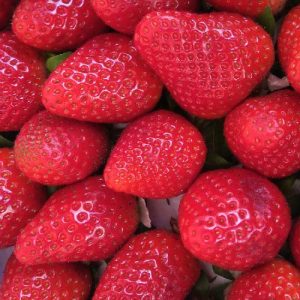
9. Carrots
Owing to their easy availability around domestic spaces such as kitchens, carrots continue to be a popular choice for donkey treats. It is a rich reservoir of vitamin A, vitamin C, and potassium. In addition to this, it is also considerably low in calories.
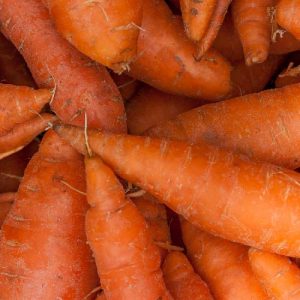
10. Celery
This green vegetable hailing from the parsley family is an excellent source of water and fiber. A 110 gram portion of celery has only 15 calories which advocates for the fact that it is sufficiently low in calories and hence a great option for a treat. Celery also happens to be rich in potassium.
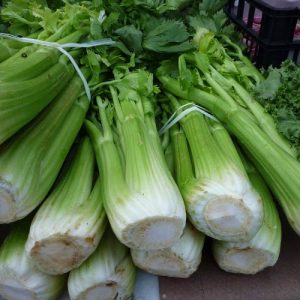
11. Rutabaga
Rutabaga also known as Swedish turnip, is a root vegetable that is predominantly low in calories and at the same time rich in fiber. They also harbor about 80 percent of water which only adds to its popularity among donkey experts who advocate for this vegetable as a primary treat.
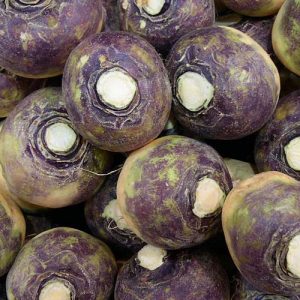
12. Pumpkin
Full of essential minerals including magnesium, potassium, and phosphorus, pumpkin is rather an essentially healthy pick when it comes to treats for our donkeys. Also, as per the statistics, these golden reservoirs of nutrition are also known to embody about 92 percent water and high amounts of fiber. It is suggested to cut this bulky vegetable into small palatable pieces before feeding them to your donkeys. In addition to this, care must also be taken to avoid pumpkins that have turned moldy due to fungus.
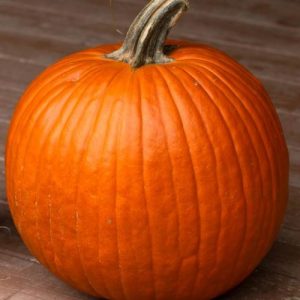
13. Turnips
Coming from the Cruciferae family which is also popular for mustards and cabbage, this underground vegetable is rather a safe option while other vegetables from the same family are not. Like our other aforementioned treats, turnips also are low in calories while being nutrient-rich. One serving of about one cup is known to contain 36 calories and significant amounts of potassium.
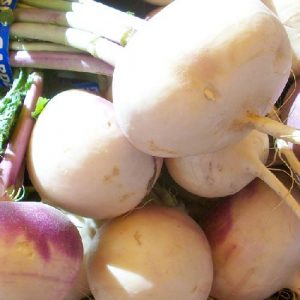
14. Butternut squash
Butternut squash is a well-known descendant of the gourd/squash family. It is also known to be a rich source of fiber and some other essential minerals like potassium and magnesium.
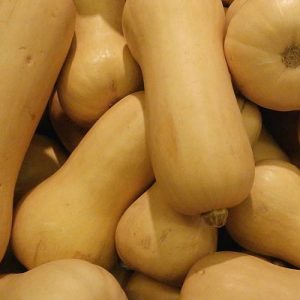
15. Dried sugar beet pulp
A byproduct of the sugar industry, sugar beet is considered useful when given in fairly moderate amounts. It can be incorporated into your donkey’s diet to increase their appetite in case they are sick, elderly, or simply underweight. Sugar beet is a highly nutritious digestible fiber.
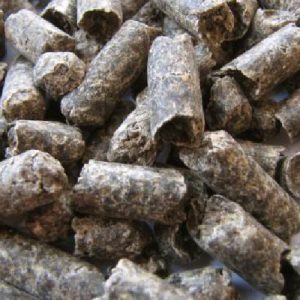
List of treats that are harmful to donkeys
As we are already aware of how donkeys are prone to obesity and other diet-related diseases such as laminitis, it becomes very critical to limit their access to high sugar or protein content. Additionally, owing to the smaller capacity of their stomachs, it becomes rather a task to digest singular bulkier meals as their small-sized intestines and stomachs are not favorable to breaking down meals in bulk. Hence it is important to maintain the portion size of these treats accordingly.
Keeping the same in mind, the following list emphasizes food items that are counterproductive in terms of feeding our donkeys.
- NEVER feed donkeys meat or dairy – animal protein can be fatal
- Cereal grains e.g. corn, barley, and oats
- Cakes
- Chocolate
- All biscuits
- Bread
- Broccoli
- Onions
- Garlic
- Aubergines
- Leeks
- Cauliflower
- Tomatoes
- Peppers
- Potatoes
Conclusion
In a nutshell, when done rightly, treats never fail if you are looking for ways to take care of your donkeys and bond with them. You can always spoil these adorable animals without having to worry about diseases looming over them such as obesity and laminitis, and it is only possible if you are mindful of their needs and plan their diet (including treats) accordingly. It is also important to monitor their sugar intake as it only drives them towards obesity.
Importantly, one must make it a point to provide their donkeys with a fiber-rich diet when making a choice for treats. Fibers promote gut health and also provide nutrients for the healthy bacteria that reside there.
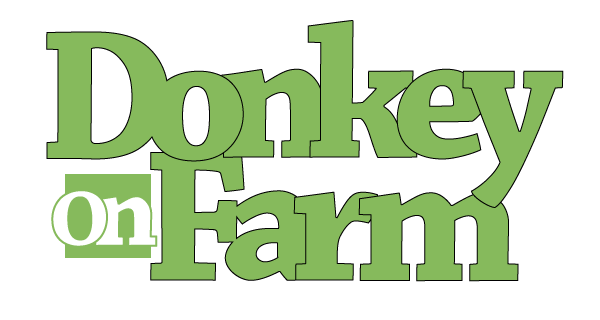
![15 Healthy Treats for Donkeys That Are Easy to Find [Plus What to Avoid] healthy treats for donkeys](https://donkeyonfarm.com/wp-content/uploads/2022/11/treats-for-donkeys.webp)

![How Cold is Too Cold for a Donkey? [Plus Tips to Keep Them Warm] How-Cold-is-Too-Cold-for-a-Donkey](https://donkeyonfarm.com/wp-content/uploads/2022/09/How-Cold-is-Too-Cold-for-a-Donkey-270x180.jpg)
![How to Get Rid of Flies on Your Donkey? [Plus Prevention Methods] How to Get Rid of Flies on your Donkey](https://donkeyonfarm.com/wp-content/uploads/2022/05/How-to-Get-Rid-of-Flies-on-your-Donkey-270x180.jpg)
![Should Donkeys Be Stabled at Night? [With Alternatives to a Stable] Should-donkeys-be-stabled-at-night](https://donkeyonfarm.com/wp-content/uploads/2023/04/Should-donkeys-be-stabled-at-night-270x180.jpg)
![How Much Can Donkeys Carry? [Avoid Burdening] How-much-can-donkeys-carry](https://donkeyonfarm.com/wp-content/uploads/2022/04/How-much-can-donkeys-carry-270x180.jpg)